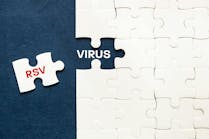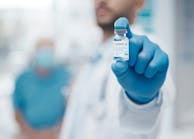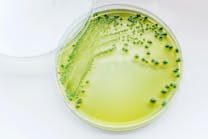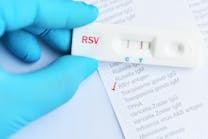The Biden-Harris Administration, through the U.S. Department of Health and Human Services (HHS), announced that it is making up to 442,000 doses of the JYNNEOS vaccine available for states and jurisdictions to order under an accelerated Phase 3 of the National Vaccine Strategy (NVS) to combat the current monkeypox outbreak.
Under the original timeline for Phase 3, doses were to be made available for ordering in three segments released on July 29, August 15, and later in August. In light of the recent Food and Drug Administration (FDA) Emergency Use Authorization (EUA) and revised dosing guidelines from the Centers for Disease Control and Prevention (CDC), HHS is able to make both segments two and three available for ordering—double the number of doses as originally anticipated.
“Ending the monkeypox outbreak is a critical priority for the Biden-Harris Administration,” said HHS Secretary Xavier Becerra. “Every step of the way, we have accelerated our response including by significantly increasing vaccine supply and distribution, expanding access to tests, making treatments available for free, and educating the public on steps to reduce the risk of infection. FDA’s Emergency Use Authorization of intradermal injection of the JYNNEOS vaccine is allowing us to get more doses to jurisdictions faster than anticipated and will help end this national monkeypox outbreak. We will continue working with our state partners to ensure equitable and fair distribution of these vaccine doses to protect those most at risk and limit the spread of the virus.”
Under the FDA EUA for JYNNEOS, the vaccine may be injected intradermally (in the upper skin layer) for individuals 18 years of age and older who are determined to be at high risk for monkeypox infection – a change that increases doses by up to five-fold. States and jurisdictions can now access additional doses from the federal government through the NVS earlier than projected and expand use of vaccine they have already received. The intradermal method of injecting the vaccine is safe and produces a similar immune response to the subcutaneous method (underneath the skin).
“We are pleased to make these additional doses available to states and jurisdictions faster than originally anticipated,” said HHS Assistant Secretary for Preparedness and Response Dawn O’Connell. “We continue to pursue all options that allow us to increase the number of vaccine doses available, expedite their delivery to places that need them, and strengthen the vaccine supply chain.”
“Since the first case of monkeypox was reported, we have been working with state and local public health partners to contain the outbreak,” said CDC director Dr. Rochelle P. Walensky. “And since FDA’s decision last week to authorize intradermal injection of the JYNNEOS vaccine, the CDC has conducted extensive outreach and engagement with clinicians across the country and released multiple resources to ensure they can effectively administer the vaccine. These actions allow for expanded protection for those at highest risk for monkeypox and strengthen our public health response.”
The EUA for the JYNNEOS vaccine allows health care providers to inject the vaccine intradermally for individuals 18 years of age and older who are determined to be at high risk for monkeypox infection. A full intradermal dose requires only 0.1mL of vaccine to elicit similar immunogenicity obtained with a 0.5mL subcutaneous dose without compromising the level of immune response achieved or the safety of the vaccine, which means that up to five people can now receive a full dose using just a single vial of vaccine.
It is critical to note that while this approach will extend the U.S. supply of JYNNEOS, vaccinated individuals will not receive “partial” doses. They will receive a full dose of vaccine for intradermal administration producing a similar level of immunologic response as a full dose for subcutaneous administration. Equally important to note is that protection conferred by the JYNNEOS vaccine requires two doses given 28 days apart – whether administered via the subcutaneous or intradermal routes. Persons under 18 years of age and some adults for whom intradermal administration is not recommended will continue to receive JYNNEOS administered via subcutaneous injection of 0.5mL.
In addition to accelerating access to doses under Phase 3, this action paves the way for launching Phase 4 of the NVS later this month – also faster than anticipated. HHS is working with all jurisdictions to determine how many JYNNEOS vials deployed to date are still available for use that potentially may yield up to five doses each. This will inform specifics of Phase 4 which, based on the increased number of doses in each unused vial, will likely include significant coverage of the entire at-risk population eligible for vaccination.
Background
Within days of the first reported cases in the U.S., the Biden-Harris Administration rapidly began deploying vaccines and treatments to states and jurisdictions. On June 28, HHS announced an enhanced national strategy to vaccinate and protect at-risk individuals from monkeypox infections by prioritizing JYNNEOS for areas with the highest number of cases. And on July 28, HHS announced the expanded allocations to more than 1.1 million doses.
In addition to vaccines, the Biden-Harris Administration has worked to increase the availability of monkeypox tests nationwide by partnering with five commercial laboratories. Since the start of the current outbreak, testing capacity has increased to 80,000 per week – up from 6,000 per week.
CDC has also taken action to significantly reduce the burden in accessing treatment for monkeypox by decreasing the documentation required to access the antiviral treatment TPOXX and also allowing providers to start treatment more quickly.
The Administration is communicating regularly with community leaders, health care providers, and stakeholders in high-risk communities to raise awareness of the steps people can take to prevent monkeypox, as well as to equitably increase access to tests, vaccines, and treatments.





